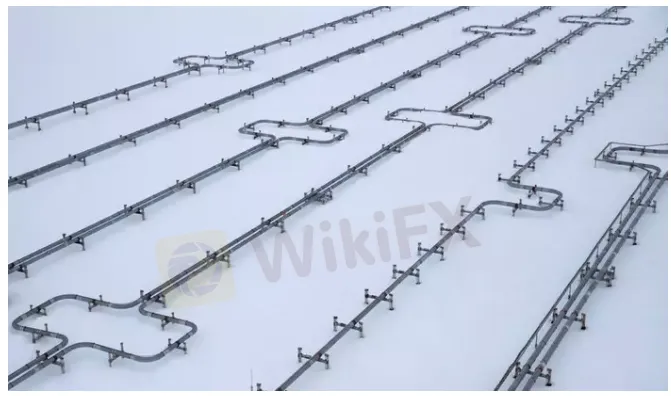简体中文
繁體中文
English
Pусский
日本語
ภาษาไทย
Tiếng Việt
Bahasa Indonesia
Español
हिन्दी
Filippiiniläinen
Français
Deutsch
Português
Türkçe
한국어
العربية
Russian demand for rouble gas payments would be breach of contract, EU leaders say
Abstract:Leaders from some European Union member states said on Thursday Russias demand that “unfriendly” countries use roubles to buy for its oil and gas could breach supply contracts.

President Vladimir Putins demand on Wednesday for rouble payments sent European gas prices surging and added to concerns over supply disruptions in the EU, which gets about 40% of its gas from Russia.
Germany and Italy said the move may breach energy supply contracts. German chancellor Olaf Scholz said the currency German companies must pay for Russian fossil fuels was fixed in their contracts.
“There are fixed contracts everywhere, with the currency in which the deliveries are to be paid being part of these contracts… in most cases it says euros or dollars,” Scholz said on his arrival to an EU summit in Brussels on Thursday.
That was echoed by Italian Prime Minister Mario Draghi. “This is basically a breach of contract, this is important to understand,” he said.
European Commission President Ursula von der Leyen agreed, and said the move was an attempt to circumvent EU sanctions against Russia.
“We will not allow our sanctions to be circumvented. The time when energy could be used to blackmail us is over,” she said.
Payments in roubles would shore up the Russian currency which has plummeted since the Feb. 24 invasion. Putins speech lifted the rouble 9% against the dollar on Wednesday.
Analysts said rouble payments would be possible without breaking EU sanctions, which do not directly hit oil and gas supplies but target banks that could be involved in rouble transactions.
Russias main gas exporter Gazprom has more than 40 long-term gas agreements with European counterparties, with Europe paying hundreds of millions of euros per day to Moscow for fossil fuels.
According to Gazprom, around 97% of its gas sales to Europe and other countries as of Jan. 27 were settled in euros or U.S. dollars.
A disruption to Russian oil and gas imports would hit some EU countries harder than others. Germany, Europe‘s biggest economy and energy consumer, receives 18% of Russia’s gas exports and 11% of its oil.
Lithuanian President Gitanas Nausėda said he was “not scared” by Putins demand, since Latvia does not import Russian crude oil and could replace Russian gas with liquefied natural gas from elsewhere.
“Nobody will pay in roubles,” Slovenias Prime Minister Janez Jansa said.

Disclaimer:
The views in this article only represent the author's personal views, and do not constitute investment advice on this platform. This platform does not guarantee the accuracy, completeness and timeliness of the information in the article, and will not be liable for any loss caused by the use of or reliance on the information in the article.
Read more

Blockchain Decentralization: Empowering a Trustless Future
In recent years, blockchain technology has rapidly evolved from a niche innovation behind Bitcoin into a transformative force across industries. At its core, blockchain decentralization refers to the distribution of authority and decision-making away from a central entity and into the hands of a distributed network of participants. This shift redefines how data is stored and verified and paves the way for trustless, transparent, and resilient systems that challenge traditional centralized models.

The president of @Liberland, @Vít Jedlička come on stage, dialogue on trading security.
The 2025 WikiEXPO Hong Kong Station is about to grandly open. the president of @Liberland, @Vít Jedlička come on stage, dialogue on trading security.

Countdown: 1 day.WikiEXPO2025's first stop, Hong Kong, is about to open.
⏰ Countdown: 1 day. WikiEXPO2025's first stop, Hong Kong, is just tomorrow. Focus on transaction security and explore new investment opportunities. ???? Get ready to start now. See you tomorrow.

JustForex vs JustMarkets: A Comprehensive Comparison in 2025
Selecting the right forex broker can make the difference between trading success and frustration for most investors, especially retail investors. As retail traders gain unprecedented access to global markets, the choice between platforms like JustForex and JustMarkets becomes increasingly significant. Both brokers offer some shining features within the forex and CFD trading space, but their approaches differ in some areas.
WikiFX Broker
Latest News
INFINOX Partners with Acelerador Racing for Porsche Cup Brazil 2025
Global Panic Builds as Forex Shifts into Risk-Off Mode
SEC Fines Velox Clearing $500,000 for SAR Failures
Shocking! Oil Prices Plunge Below $60
Singapore Authorities Warned Against WeChat, UnionPay, Alipay Impersonation Scams
WikiFX Forex Prediction Challenge
The Dark Side of Trading Gurus: Are You Following a Fraud?
Gold Prices Plunge: How Should Investors Respond?
Currency Calculator







